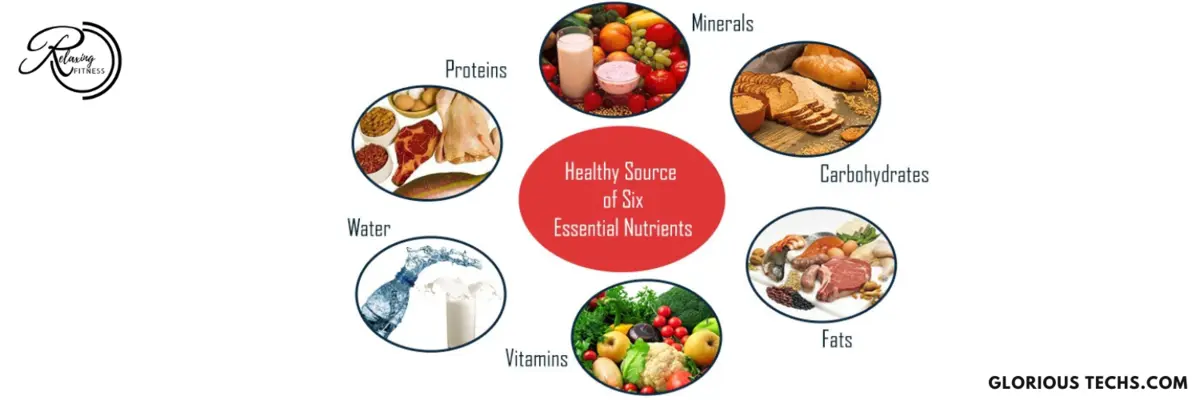Why is food and health important
“Uncover the critical relationship between food and health as we delve into the significance of nourishing our bodies with nutritious meals. Learn about the advantages of a balanced diet, the effect of nutrient deficiencies, and practical tips for making healthy food choices. Take control of your health through food and gain the most out of your delicious and nutritious meals with this informative guide.”
Why is food and health important
The food we eat plays a vital role in maintaining our overall well-being, and a healthy diet is essential for maintaining good health. However, many people struggle to understand the importance of food and health, and how to make the right food choices to support their health goals. In this article, we will explore the reasons why food and health are so important, and provide practical tips for making healthy food choices.
First and foremost, a healthy diet is essential for maintaining a healthy weight. Eating a diet that is high in fruits, vegetables, whole grains, and lean proteins, and low in added sugars, saturated fats, and sodium can help to control your weight and reduce your risk of obesity-related diseases such as diabetes, heart disease, and certain cancers. Additionally, eating a balanced diet can also help to improve your energy levels, boost your mood, and support your immune system.
Another important aspect of food and health is nutrient density. Our bodies need a wide range of essential vitamins, minerals, and other nutrients to function properly. A healthy diet that is rich in nutrient-dense foods can help to ensure that you are getting all of the nutrients your body needs to function properly. However, nutrient deficiencies can lead to a wide range of health problems, including anemia, osteoporosis, and cognitive decline.
Food is also important for mental health. Eating a healthy diet can help to improve mood and reduce the risk of mental health conditions such as depression and anxiety. Eating nutrient-dense foods that are high in vitamins and minerals can help to improve brain function, reduce inflammation, and boost overall mood. Additionally, eating a diet that is high in fruits, vegetables, and whole grains can also help to reduce the risk of cognitive decline.
Making healthy food choices can also be a challenge. Many people struggle to find the time or resources to prepare healthy meals, and may turn to convenience foods that are high in added sugars, saturated fats, and sodium. Additionally, many people may not have access to fresh fruits and vegetables, or may not know how to prepare them. However, there are many ways to make healthy food choices, even on a budget and with limited time. For example, meal planning, and keeping healthy snacks on hand, and knowing how to cook simple and healthy meals can help to ensure that you are getting the nourishment your body needs.
In conclusion, food and health are inextricably linked. Eating a healthy diet that is rich in nutrient-dense foods can help to improve your overall well-being, reduce the risk of chronic diseases, and support your mental health. Making healthy food choices can be a challenge, but with the right tools and resources, anyone can learn to nourish their body with healthy and delicious meals. Remember, a healthy diet is not about strict limitations, but rather about feeling good, having more energy, improving your health, and stabilizing your mood.
A good health and food chart should be based on the principles of a balanced diet, which includes a variety of nutrient-dense foods from all food groups in the right proportions. It should also take into account the individual’s age, gender, activity level, and any specific health needs or concerns.
“Discover the vital connection between food and health as we explore the reasons why nourishing our bodies with nutritious meals is crucial for maintaining overall well-being. Learn about the benefits of a balanced diet, the impact of nutrient deficiencies, and practical tips for making healthy food choices. Empower yourself to improve your health through food and make the most of your delicious and nutritious meals.”
The food we consume not only provides our bodies with the energy and nutrients they need to function properly, but it can also have a direct impact on our overall well-being. In this article, we will explore how food affects health and how to make healthy food choices to support our health goals.
One of the most obvious ways that food affects health is through its impact on weight. Eating a diet that is high in fruits, vegetables, whole grains, and lean proteins, and low in added sugars, saturated fats, and sodium can help to control your weight and reduce your risk of obesity-related diseases such as diabetes, heart disease, and certain cancers. On the other hand, consuming a diet that is high in processed and fast foods, can lead to weight gain, and in the long term, lead to chronic diseases.
Food also plays a crucial role in providing our bodies with the essential vitamins, minerals, and other nutrients they need to function properly. A healthy diet that is rich in nutrient-dense foods can help to ensure that we are getting all of the nutrients our bodies need to function properly. However, nutrient deficiencies can lead to a wide range of health problems, including anemia, osteoporosis, and cognitive decline.
Another important aspect of food and health is its impact on mental health. Consuming a healthy diet can help to improve mood and reduce the risk of mental health conditions such as depression and anxiety. Eating nutrient-dense foods that are high in vitamins and minerals can help to improve brain function, reduce inflammation, and boost overall mood. Additionally, consuming a diet that is high in fruits, vegetables, and whole grains can also help to reduce the risk of cognitive decline.
Food also has a direct impact on our gut health. The gut is home to trillions of microorganisms, collectively known as gut microbiome. A healthy gut microbiome is essential for overall health and well-being. Eating a diet that is high in fruits, vegetables, and whole grains can help to promote a healthy gut microbiome, while a diet that is high in processed and fast foods can have a negative impact on gut health. A healthy gut microbiome can help to improve digestion, boost the immune system, and even improve mood.
Making healthy food choices can also be a challenge. Many people struggle to find the time or resources to prepare healthy meals, and may turn to convenience foods that are high in added sugars, saturated fats, and sodium. Additionally, many people may not have access to fresh fruits and vegetables, or may not know how to prepare them. However, there are many ways to make healthy food choices, even on a budget and with limited time. For example, meal planning, and keeping healthy snacks on hand, and knowing how to cook simple and healthy meals can help to ensure that you are getting the nourishment your body needs.
In conclusion, food plays a vital role in maintaining good health. Eating a healthy diet that is rich in nutrient-dense foods can help to improve our overall well-being, reduce the risk of chronic diseases, and support our mental health. Making healthy food choices can be a challenge, but with the right tools and resources, anyone can learn to nourish their body with healthy and delicious meals. Remember, a healthy diet is not about strict limitations, but rather about feeling good, having more energy, improving your health, and stabilizing your mood.













